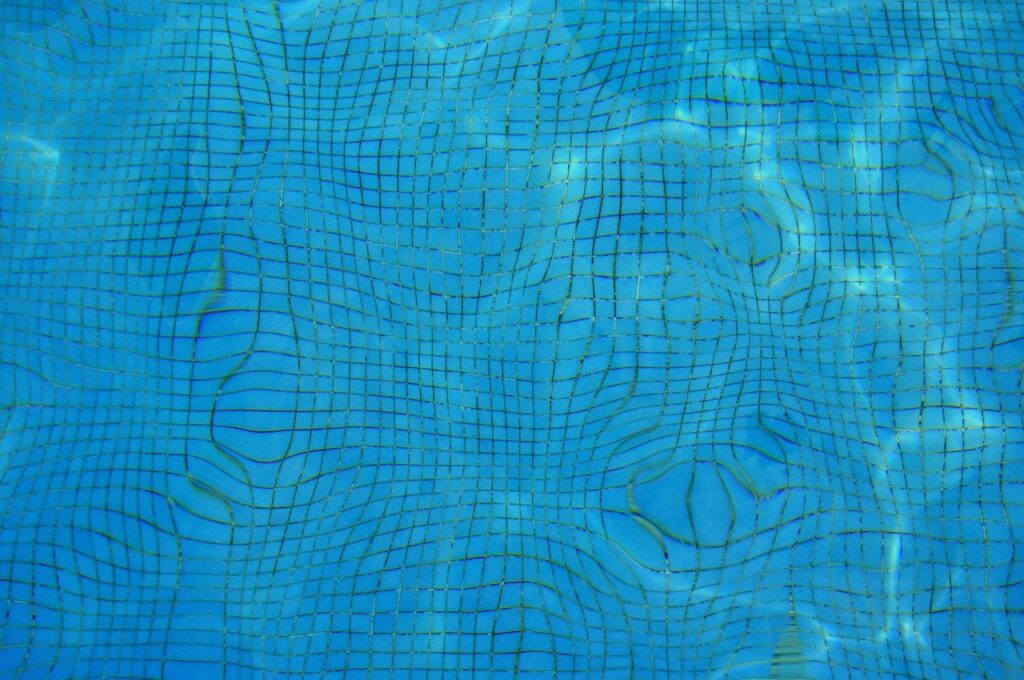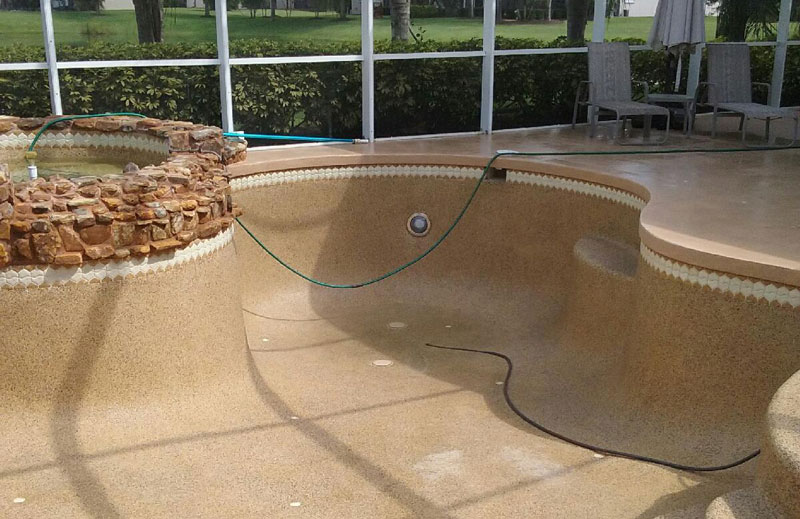When it comes to pool maintenance, pool chemicals get all the attention. And they deserve it! Not only do pool chemicals do a vital job in making your pool safe to swim, but they can be very tricky to get right.
But let’s not overlook the importance of the pool filter. Relatively speaking, it’s a simple concept: A pool filter picks out debris with, essentially, the same mechanism as cupping your hands and letting the water pass through your fingers.
Still, oftentimes simple solutions are still around because they’re so effective and hard to break. Even though you’ll always have to monitor your pool’s chemicals, pool filters really do have a kind of “set it and forget it” convenience—so long as you pick the right pool filter for you and your pool.
How Do Pool Filters Work?
Your pool should have a couple of forms of intake systems within the pool itself: the skimmer and the drain. Both of these act as water sources for your pool pump to draw from.
The water travels from the pool itself, into those drains, and into the pump. The pool pump then pushes the water out and straight into the filter. The water should pass relatively freely through the filter, but various types of debris will get trapped inside. You or your pool maintenance service will have to clean out this trapped debris periodically or it will lower the filter’s effectiveness and impede the flow of water, making your pump work harder.
Pool filter effectiveness is measured in microns, short for micrometers. One micron is smaller than a single bacterium or the dust from a flour mill. A strand of hair is approximately 70 microns wide.
What Kinds of Pool Filters are There?
Pool filters come in three major types: sand filters, cartridge filters and diatomaceous earth (D.E.) filters.
Sand filters are just that—that let your pool’s water flow through a highly contained tank of sand. The collection of sand granules together, as well as each sand particle’s naturally jagged edges, catch debris while letting the H2O flow through. An average pool sand filter uses about 350 pounds of sand.
You clean sand filters through a process known as backwashing, which simply reverses the flow through the filter to flush the trapped debris out of the built-in waste valve. However the water waste should be noted.
Sand pool filters are typically filled with #20 silica sand, which filters debris that is 20 microns or larger. Alternative materials that can be used in sand filters include ZeoSand and filterglass, which can filter as small as 5 microns.
Cartridge filters, while slightly more expensive than sand filters, average a 10-micron filtration ability and can be cleaned with a hose. They do need replacement more frequently, though.
Diatomaceous earth filters can snag particles as small as 5 microns using a grid made from—seriously—tiny fossilized sea creatures, or diatoms. D.E. filters are cleaned through backwashing (like sand filters), though yours may also include a “bump” handle that knocks the trapped debris free in the cleaning process like knocking mud off your shoes.
D.E. filters are your most expensive pool filtration option, plus the cleaning process is labor-intensive, and backwashing may be restricted in your area due to a potential for buildup in other areas. D.E. is also a known carcinogen when airborne, albeit only after prolonged inhalation.
Regardless of your preferred pool filtration method, you’ll need a pool filter proportional in size to your pool pump. The point is that you get something that you’re comfortable with in terms of price, filtration level, and cleaning process. You don’t want to dread cleaning your pool filter. Stress leads to procrastination, and that will only cause bigger (and potentially more expensive) problems for you and your pool.
Considering a filter system change? Talk to your Bahama Blue technician to get you started. We maintain and service a whole spectrum of pool filters, all right here in southwest Florida, and we can tell you what we see.


